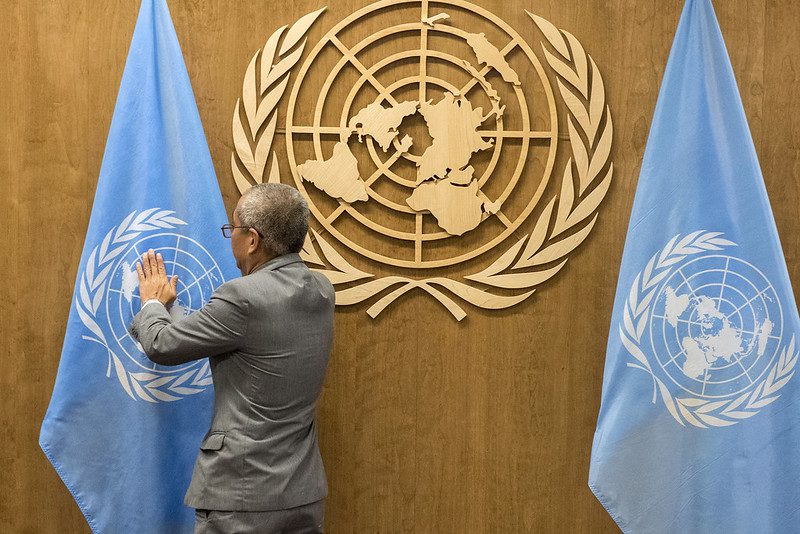The United Nations Economic and Social Council voted Wednesday to immediately remove Iran from the U.N.’s most important global body working to advance gender equality given the country’s systematic abuse of women and children’s rights, an action the United States described as “historic” and Iran claimed was based on “imaginary allegations.”
Iran’s brutal suppression of peaceful protestors in September, in response to the death of a 22-year-old woman who was detained by the morality police, prompted the U.S. to sponsor a resolution condemning the country’s rights violations. Human Rights Activists in Iran estimate that at least 488 people have been killed since the protests began, as 18,200 more people have been detained.
Iran was expelled from the Commission on the Status of Women during its 2022-2026 term, as decided by a vote of 29-8 with 16 abstentions in the 54-member UN Economic and Social Council.
Ambassador Linda Thomas-Greenfield described the vote as “historic” and “the right thing to do,” since it was the first time a commission member had ever been expelled.
After the vote, she told reporters that she thought the message to the Iranian government and to Iranian women was strong.
An ally of Venezuela’s President Nicolas Maduro is seeking diplomatic recognition in a New York court.
Thomas-Greenfield cited Mahsa Amini‘s death, who was accused of wearing her headscarf incorrectly by the morality police; the solitary confinement of two journalist women who reported her story; and the young women and girls who have been killed or disappeared for expressing themselves, in addition to thousands of protesters reportedly detained and tortured for telling her tale before the vote.
National Security Adviser Jake Sullivan said that the vote reflects the United States and its allies and partners around the world coming to an agreement that Iran must be held accountable for “atrocities” such as the recent “horrifying executions” of protesters in Tehran.
The Commission on the Status of Women has been a leading force in advocating for women’s rights, documenting the situations of women worldwide, and establishing global standards to assist women and achieve gender equality since its founding in 1946.
The Economic and Social Council elects its 45 members, representing all regions of the world, for four-year terms. Iran received 43 votes from the Asian region to become a member.
Iran’s Zahra Ershadi rejected the resolution and what she described as “the baseless and fabricated allegations” against her country after the vote. She asserted that the Iranian government defends women’s rights, “denies all false and malicious statements about women’s rights in particular by the U.S. and certain EU members of parliament.”
Before the vote, Gennady Kuzmin, Russia’s deputy ambassador, accused the U.S. and its allies of attempting to discredit their political opponents by pressuring the U.N. Commission on the Status of Women to purge an ‘influential and sovereign player’.
The council should request a U.N. legal opinion before taking action on the resolution, whether the vote conformed with UN and ECOSOC procedures, he said.
An ECOSOC resolution requires that such requests be submitted in writing at least 24 hours in advance, and the decision to waive that requirement was put to a vote. Twelve nations voted against waiving the requirement, while 26 nations voted in favour and 11 nations abstained.
ECOSOC subsequently approved the U.S. resolution after several more speeches.
Since September, the Commission on the Status of Women has been expressing “serious concern” over Iran’s actions as they flagrantly contravene the human rights of women and girls, including by using excessive force to suppress the freedom of speech and opinion and kill peaceful protesters, including women and girls.
Image Credit: United Nations Photo



















